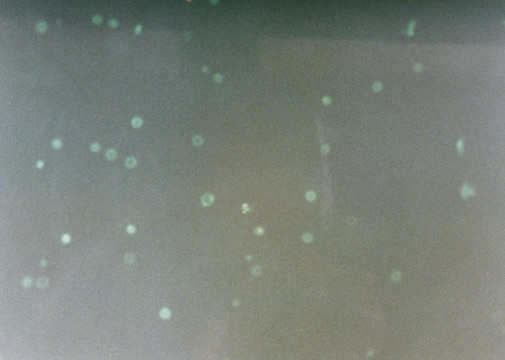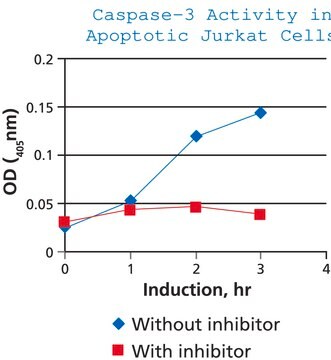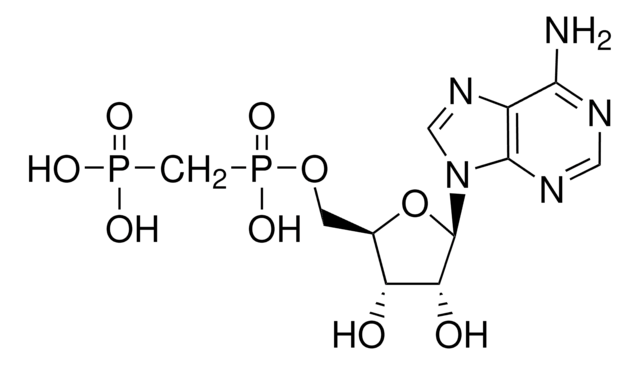C160
CGP-42112A
≥95%, synthetic, solid
Synonym(s):
Nα-Nicotinoyl-Tyr-(Nα-Cbz-Arg)-Lys-His-Pro-Ile
About This Item
Recommended Products
biological source
synthetic
Quality Level
Assay
≥95%
form
solid
color
white
storage temp.
−20°C
SMILES string
CC[C@H](C)[C@H](NC(=O)[C@@H]1CCCN1C(=O)[C@H](Cc2c[nH]cn2)NC(=O)[C@H](CCCCNC(=O)[C@H](CCCNC(N)=N)NC(=O)OCc3ccccc3)NC(=O)[C@H](Cc4ccc(O)cc4)NC(=O)c5cccnc5)C(O)=O
InChI
1S/C52H69N13O11/c1-3-32(2)43(50(73)74)64-48(71)42-17-11-25-65(42)49(72)41(27-36-29-56-31-59-36)62-46(69)39(60-47(70)40(26-33-18-20-37(66)21-19-33)61-44(67)35-14-9-22-55-28-35)15-7-8-23-57-45(68)38(16-10-24-58-51(53)54)63-52(75)76-30-34-12-5-4-6-13-34/h4-6,9,12-14,18-22,28-29,31-32,38-43,66H,3,7-8,10-11,15-17,23-27,30H2,1-2H3,(H,56,59)(H,57,68)(H,60,70)(H,61,67)(H,62,69)(H,63,75)(H,64,71)(H,73,74)(H4,53,54,58)/t32-,38-,39-,40-,41-,42-,43-/m0/s1
InChI key
UXGNARZDONUMMK-LRMQDCNJSA-N
Gene Information
human ... AGTR2(186)
rat ... AGTR2(11609)
Looking for similar products? Visit Product Comparison Guide
Amino Acid Sequence
Application
- in the isolation of RNA from fibroblast-like synoviocytes from rheumatoid arthritis patients (RA-FLS)
- to study its effects on the ERK2 phosphorylation in the cardiomyoblast cell line
- as a stimulator of angiotensin II type 2 (AT2) receptor to study its effects on human regional hemodynamic responses mediated by AT2 receptors
Biochem/physiol Actions
Storage Class Code
11 - Combustible Solids
WGK
WGK 3
Flash Point(F)
Not applicable
Flash Point(C)
Not applicable
Personal Protective Equipment
Certificates of Analysis (COA)
Search for Certificates of Analysis (COA) by entering the products Lot/Batch Number. Lot and Batch Numbers can be found on a product’s label following the words ‘Lot’ or ‘Batch’.
Already Own This Product?
Find documentation for the products that you have recently purchased in the Document Library.
Our team of scientists has experience in all areas of research including Life Science, Material Science, Chemical Synthesis, Chromatography, Analytical and many others.
Contact Technical Service








